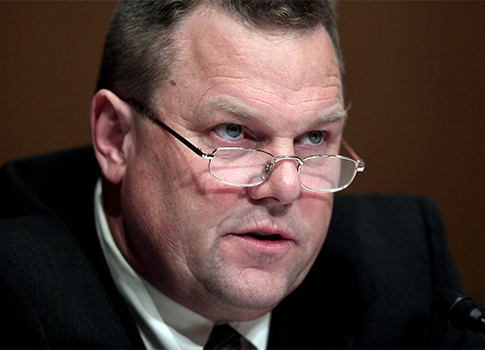Sen. Jon Tester (D., Mont.), who chairs the Democratic Senatorial Campaign Committee, quickly moved to donate more than $50,000 in potentially illegal contributions to the U.S. Treasury on Monday.
The Democratic incumbent transferred $51,800 from his campaign to the Treasury Department two days after after the Boston Globe reported that the Boston-based Thorton Law Firm may have illegally reimbursed partners for campaign contributions.
Tester is among more than a dozen Democratic senators and Senate candidates scrambling in the wake of the report finding the law firm gave partners bonus checks that mirrored their political contributions in a potential violation of federal law.
Marneé Banks, a spokeswoman for Tester, told the Hill on Monday evening that the Montana Democrat has worked to fix the U.S.'s "broken" campaign finance system.
"He's fighting to clean up Washington and fix it," Banks said. "He's incredibly frustrated with the gridlock that has prevented Congress from passing his legislation which increases transparency in elections, and he'll keep working to bring people together to ensure that we have more sunlight in campaigns."
Tester, who is up for reelection in 2018, received the donations from Thorton Law Firm during the 2010 and 2012 election cycles, prior to his position as chairman of the DSCC.
High-profile Democrats Maggie Hassan of New Hampshire and Russ Feingold of Wisconsin have vowed to return nearly $100,000 in contributions following GOP criticisms that the donations are "tainted."
The law firm also donated to senior Senate Democrats, including Minority Leader Harry Reid of Nevada, Chuck Schumer of New York, and Elizabeth Warren of Massachusetts.
In 2016, the Thornton Law Firm has given more than $750,000 to federal candidates, with nearly all of those donations going to Democrats, according to the Center for Responsive Politics.
Federal law generally bars reimbursements for political contributions because it can enable an individual to mask the source of donations or to exceed state and federal contribution limits.
